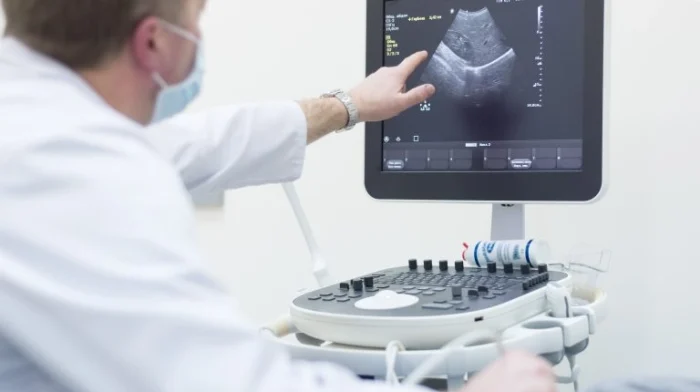Medex provides fast appointments for all types of ultrasound tests, with immediate results on the spot. In most cases, the examination can be performed on the same day as your request.
Ultrasound scans are carried out privately by highly experienced radiologists, ensuring accurate diagnosis, personal attention, and a comfortable experience.
Medex works in collaboration with network of radiologist and leading imaging centers and hospitals across Israel, offering access to advanced ultrasound equipment and professional medical care. Whether you need an abdominal, pelvic, thyroid, or musculoskeletal ultrasound — our team will schedule your appointment quickly and make sure you receive your results without unnecessary delays.
Hebrew: If you prefer to receive services in Hebrew, we recommend to visit following link: תור לבדיקת לאולטרסאונד
An ultrasound scan (also known as a sonography or ultrasonography) is one of the most common and safest medical imaging tests used in modern medicine.
It is a non-invasive, radiation-free procedure that creates real-time images of internal organs, tissues, muscles, and ligaments inside the body.
During the examination, the ultrasound device emits high-frequency sound waves that bounce off internal organs and tissues. These echoes are instantly processed by the machine and converted into dynamic images, allowing the radiologist to view internal structures, detect abnormalities, and assess their condition and function.

An ultrasound test is an effective and painless diagnostic tool used to evaluate a wide range of medical conditions. The most common reasons for performing an ultrasound include:

During the ultrasound examination, the patient lies comfortably on a bed while the radiologist or ultrasound technician places a small handheld device called a transducer over the examined area. A special ultrasound gel is applied to the skin to improve sound wave transmission and ensure clear imaging.
The procedure is completely painless, typically lasts 15–30 minutes, and provides real-time images of the body’s internal structures on the screen.
In certain cases, a Doppler ultrasound may be used to evaluate blood flow in the arteries and veins, helping to detect blockages or circulatory issues.
Throughout the examination, the radiologist captures important images of key anatomical areas, as well as any suspicious or abnormal findings. At the end of the scan, the radiologist reviews the images, summarizes the results, and prepares a detailed medical report for the referring physician and the patient.
All ultrasound tests are performed according to strict medical protocols, based on the specific organ being examined and the clinical purpose of the test, ensuring accuracy, safety, and reliable diagnostic information.
Ultrasound scans can image a wide variety of areas, including the abdomen, pelvis, liver, kidneys, thyroid, ovaries, uterus, muscles, joints, blood vessels, and more. Each area follows a specific medical protocol, ensuring accurate imaging and proper diagnostic assessment.
An ultrasound can be done without a referral, but having a doctor’s referral with a clear protocol helps the radiologist perform the examination correctly for the specific organ and medical condition. A referral ensures the radiologist knows what to focus on during the scan.
Yes, ultrasound is safe and suitable for most patients. In some cases, special preparation may be required, such as fasting for abdominal scans or drinking water for pelvic scans.
Referral: Recommended but not mandatory. A referral with a clear protocol ensures proper examination.
Preparation instructions: Depending on the organ, you may be asked to fast or drink water before the scan. For example, abdominal, kidney, or urinary tract scans may require drinking plenty of water beforehand.
Simply call us at 03-772-4218 or leave your details online, and our team will contact you promptly with available appointment times.
Through Medex, you can often schedule an appointment within 24 hours or even the same day, depending on the type and protocol of the ultrasound.
MedAssist operates a private ultrasound clinic, with examinations performed by highly experienced radiologists. We also collaborate with other clinics and private radiologists, allowing us to schedule almost any type of ultrasound scan quickly.
For appointment availability, call: 03-772-4218
Yes, this is a private paid service.
If the patient has health insurance, partial or full reimbursement may be available, depending on the policy terms.
No. Medex operates privately and does not accept Form 17 or public health fund commitments. All tests and services are provided on a paid basis.
However, patients with private health insurance may be eligible for partial or full reimbursement, according to their insurance policy.
Also, Medex works with leading international insurance companies and accepts their guarantees of payment, allowing you to receive care without any upfront cash payment.
Yes, Medex collaborate with numerous international Health and Travel Insurance companies and can accept their guarantee of payment to cover your medical expenses.
A Guarantee of Payment (GOP) from an insurance company is a formal assurance provided by your insurer to a healthcare provider, confirming that the insurer will cover specified medical expenses for a policyholder. This document is typically issued before the medical service is provided, ensuring that the provider will receive payment for the agreed-upon services
Pre-Authorization:
The healthcare provider (Medex) requests pre-authorization from the insurance company before delivering non-emergency services to the patient. This step ensures that the services are covered under the patient’s insurance policy.
Insurance Company Review:
The insurer reviews the request to determine whether the proposed medical services are necessary and covered under the patient’s policy. This may involve evaluating the patient’s medical history, the proposed treatment plan, and the policy details.
Issuance of GOP:
Direct Billing:
Submission of Claims:




















